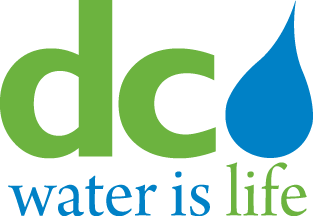Get Issuer Alerts
Add this issuer to your watchlist to get alerts about important updates.
DC Water Awarded $1 million Grant by EPA for Exciting New Wastewater Innovation
View allOctober 19, 2020
Vince Morris
(202) 787-2081
Vincent.Morris@dcwater.com
October 19, 2020
DC Water announced today that it is partnering with several universities on groundbreaking new research that will save customers money and could improve water quality.
The goal is improved wastewater treatment and DC Water’s concept for improving the technology has the potential to save millions for cities around the world, said Chief Executive Officer and General Manager David L. Gadis.
“Our goal is to reduce energy use and save our customers money while using innovative technology to improve the environment,” explained Mr. Gadis, while praising the partnership with George Washington University, Northwestern University and the University of Queens in Ontario.
The U.S. Environmental Protection Agency awarded DC Water its ‘Science to Achieve Results grant’ with a three-year timeframe for achieving results. At DC Water, the project is led by Christine deBarbadillo, the director of clean water and technology.
She said the authority has worked well with GW for many years on exploring solutions and upgrades to existing wastewater technology. She also said that the research is focused primarily on finding ways to denitrify wastewater in the Chesapeake Bay area while cutting the chemical and financial costs required to complete the process along with reducing energy consumption.
Removing nitrogen helps prevent harmful algae growth in the water and is a critical element in DC Water’s requirement to clean wastewater to the highest possible level before discharging it back into the Potomac River, where it leads to the Bay.
Nitrogen and phosphorus lead to algal blooms in wastewater. When that happens, the health of marine life, from fish to crabs to dolphins, is jeopardized.
According to deBarbadillo, the typical treatment methods used by DC Water to eliminate nitrogen involves costly equipment and using anammox, which is expensive and consumes a tremendous amount of electricity.
“We are using a different pathway into the nitrogen cycle to more efficiently remove nitrogen and save energy and chemical costs,” deBarbadilo said.
DC Water is also working with the Water Research Foundation on the technology.

